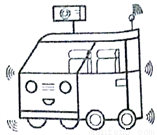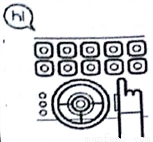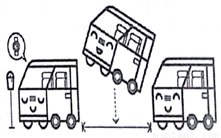题目内容
A recent documentary produced by the British Broadcasting Corporation has caused a stir in China and in the UK.
The documentary, titled Are Our Kids Tough Enough? Chinese School revolves (以……为主题) around five Chinese teachers who are sent to teach 50 UK teens at a school in Hampshire.
The teachers instruct the students for a month. The pupils are then tested, and the results are compared to the ones of those who have continued in the regular UK education system. The idea is to see if the Chinese method improves academic performance.
The Chinese teachers use their own teaching methods but receive strong resistance from the students. A clip from the documentary online shows some problems, with Chinese teachers calling their students lazy and lacking in discipline(纪律), while the students say the high pressure and harsh teachers are driving them crazy.
This has aroused a new debate in both China and the UK, with some arguing the teenagers need more regulation and discipline. Others say Chinese methods encourage note learning instead of independent thinking. For instance, Chinese language teachers should do more than pass on knowledge about words and characters. They should inspire students, helping them feel the sentiment from Chinese literature. This is a higher level of teaching.
Yang Dongping, dean of the 21st Century Education Research Institute, says, “The Chinese teaching methods are designed to strictly train the majority. Foreign teaching methods, however, are more natural and relaxing, and designed to inspire students' interest in learning. Education methods are based on culture. That is why a successful education method in one place may not work that well when simply 'transplanted' into another place.”
Yang Dongping says, “The documentary does reflect some problems rooted in traditional Chinese teaching methods. Nobel Prize winner, Yang Zhenning, gave a very fair comment on this issue. He said the Chinese-style education method works for most ordinary qualified students effectively, helping them reach high standards. However, it may compromise the training for high-potential outstanding students.”
1.What is the purpose of 50 UK teens' being instructed by five Chinese teachers?
A. To test the effectiveness of Chinese teaching method.
B. To help the school improve their teaching efficiency.
C. To do some practical research into the UK education system.
D. To test the intelligence of the UK teens.
2.What's the meaning of the underlined work "harsh" in the fourth paragraph?
A. Very attractive. B. Quite friendly.
C. Rather cold. D. Extremely strict.
3.According to the report, Chinese teaching methods should focus more on ________.
A. passing on knowledge B. encouraging independent thinking
C. regulation and discipline D. training the majority strictly
4.Yang Zhenning's comment implies that traditional Chinese teaching methods are ________.
A. good for Chinese students of all levels
B. helpful to students of high standards
C. good for most ordinary qualified students
D. helpful to high-potential outstanding students
Self-driving Capabilities Sensor and camera-equipped models from Audi and Volkswagen, among others, don’t just automatically brake to prevent minor accidents; they can actually navigate(行驶)around highway traffic and into garages without a human at the wheel. |
Attractive Dashboards In addition to Ford’s new Sync system, which better understands voice commands, Apple and Google have partnered with automakers to create interfaces(界面)as user-friendly as the ones on your smartphone. |
Smarter Headlights Audi’s and BMW’s ultra-bright laser headlights can detect oncoming cars and dim slightly to avoid disturbing their drivers. One problem: they’re not yet legal in the U.S. |
Self-parking Skills The new model of BMW’s all-electric can find its own spot in a parking lot, then send signals via a smart-watch app to contact its drivers. |
1.In terms of Self-driving Capabilities, what makes Audi and Volkswagen stand out?
A. Braking when sensing red lights.
B. Going into garages without a driver.
C. Stopping other cars on highway.
D. Taking photos with a camera.
2.Which of the cars can adjust the headlights in order not to upset drivers in oncoming cars?
A. Ford and Volkswagen. B. Audi and BMW.
C. Audi and Volkswagen. D. BMW and Ford.
3.In which section of a car magazine does the article most probably appear?
A. First Drive. B. Cars For Rent.
C. Instrumental Tests. D. Smart Tech.






 the planet. An “empty” drinking glass and an “empty” room, to give two examples, are not really empty. Each is filled with air. When the glass is filled with water, the water pushes the air out of the glass.
the planet. An “empty” drinking glass and an “empty” room, to give two examples, are not really empty. Each is filled with air. When the glass is filled with water, the water pushes the air out of the glass. B.
B. 
 D.
D. 